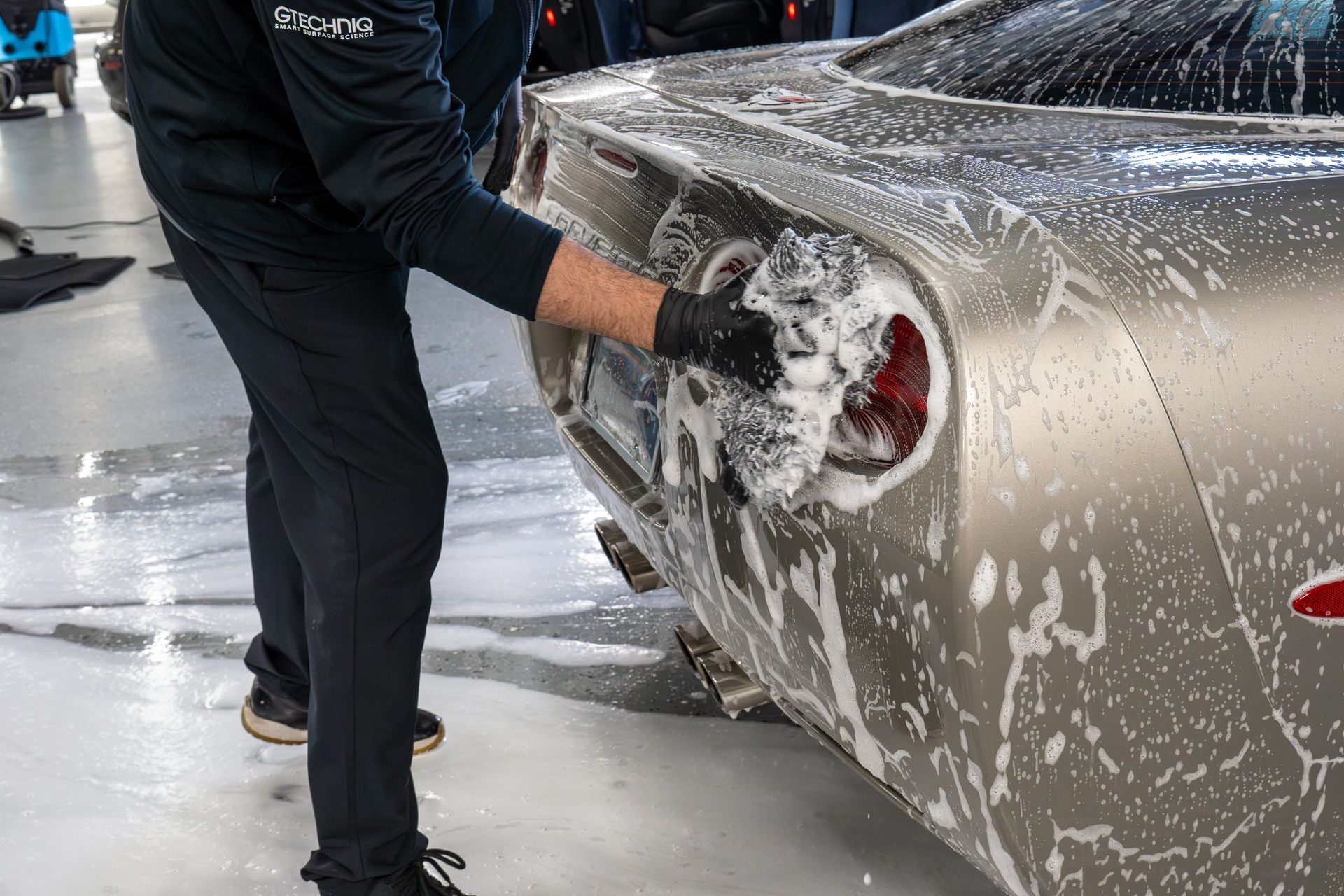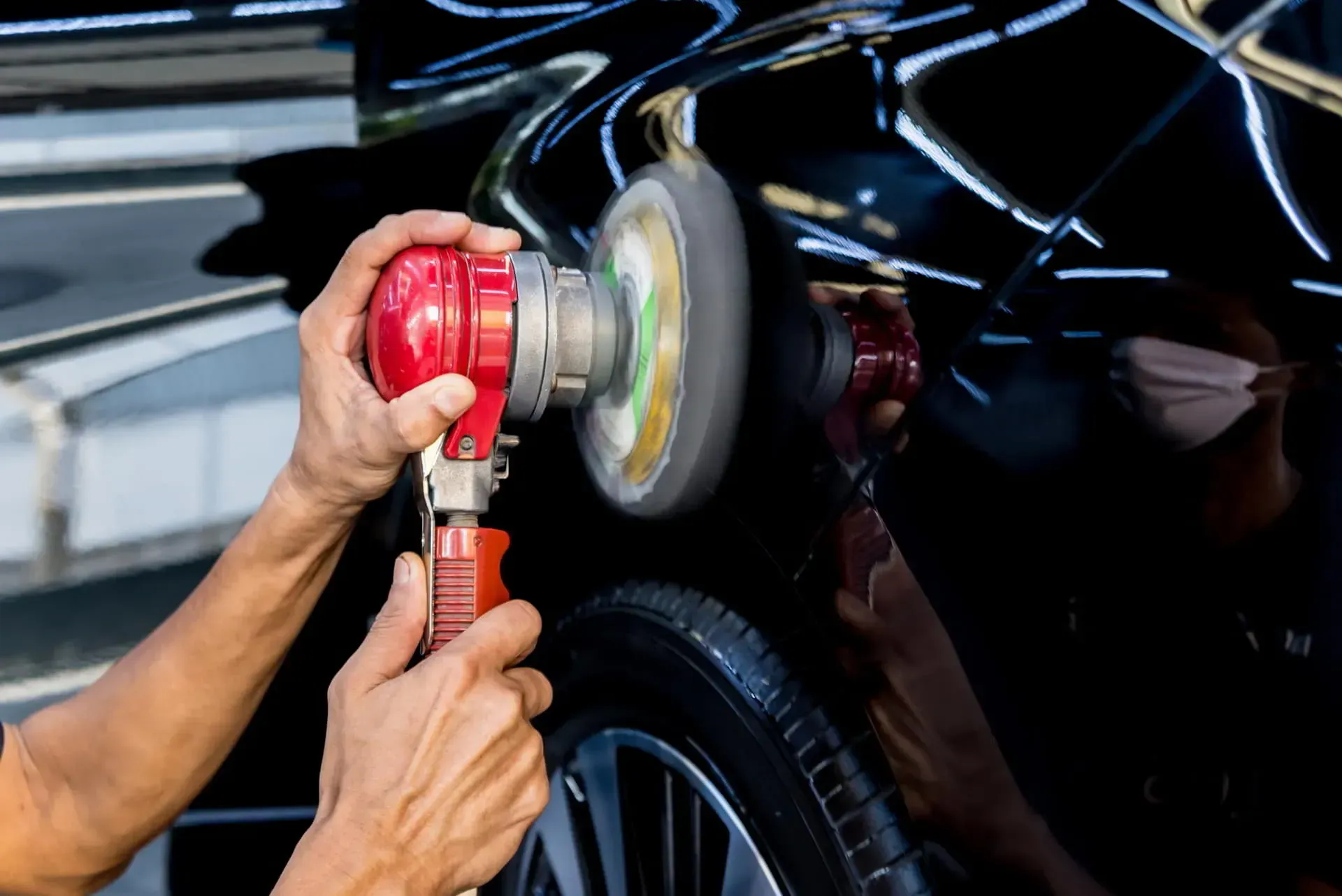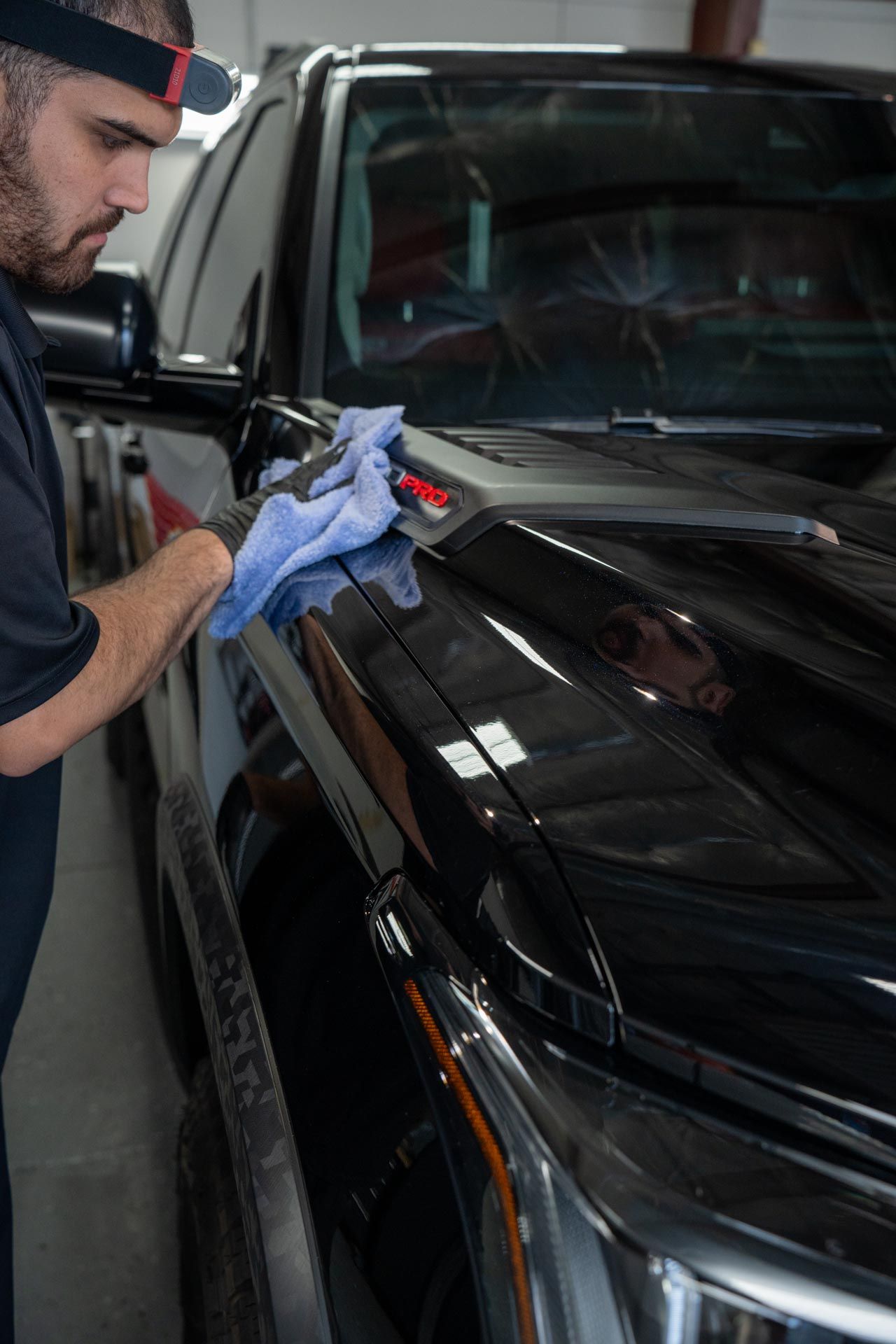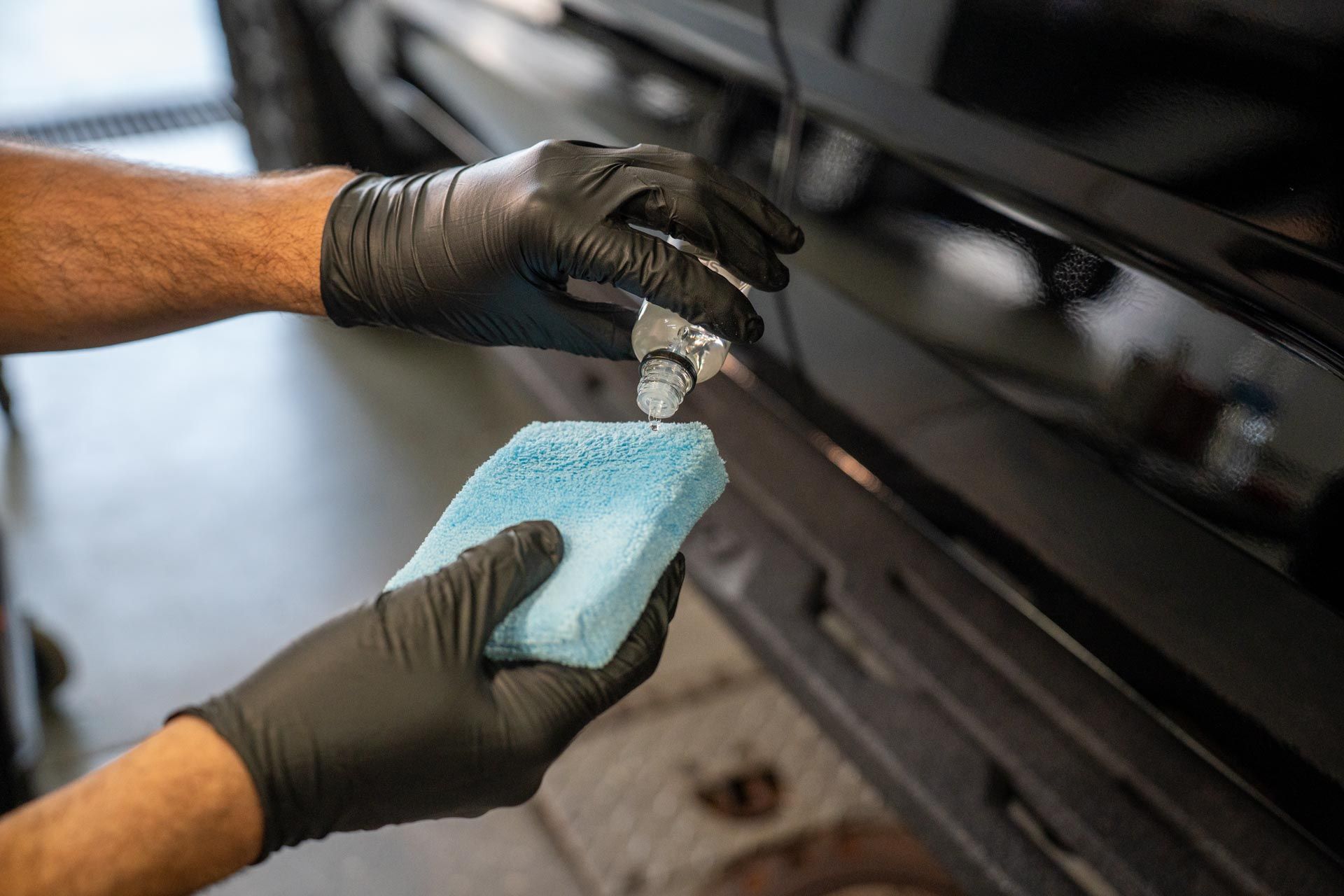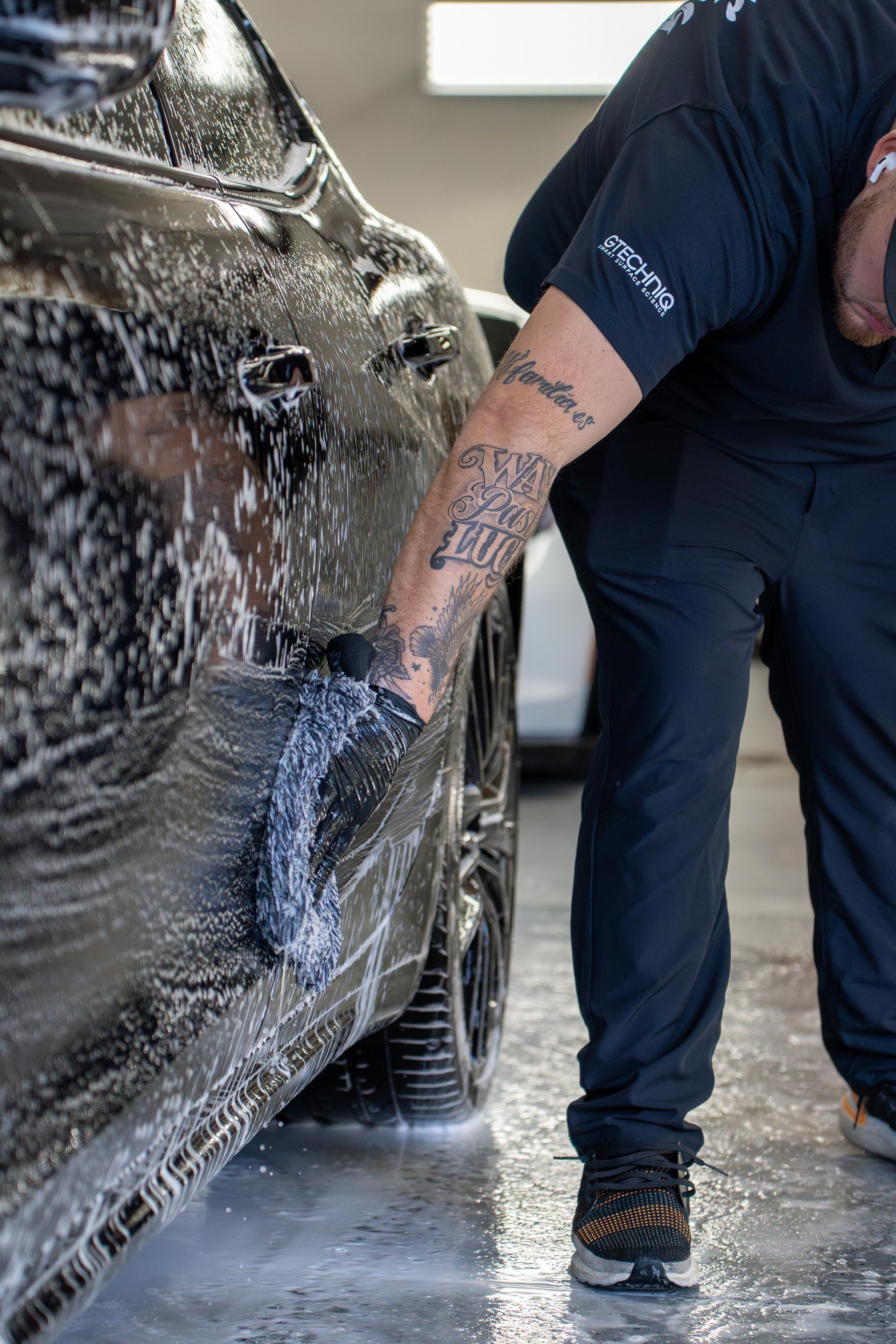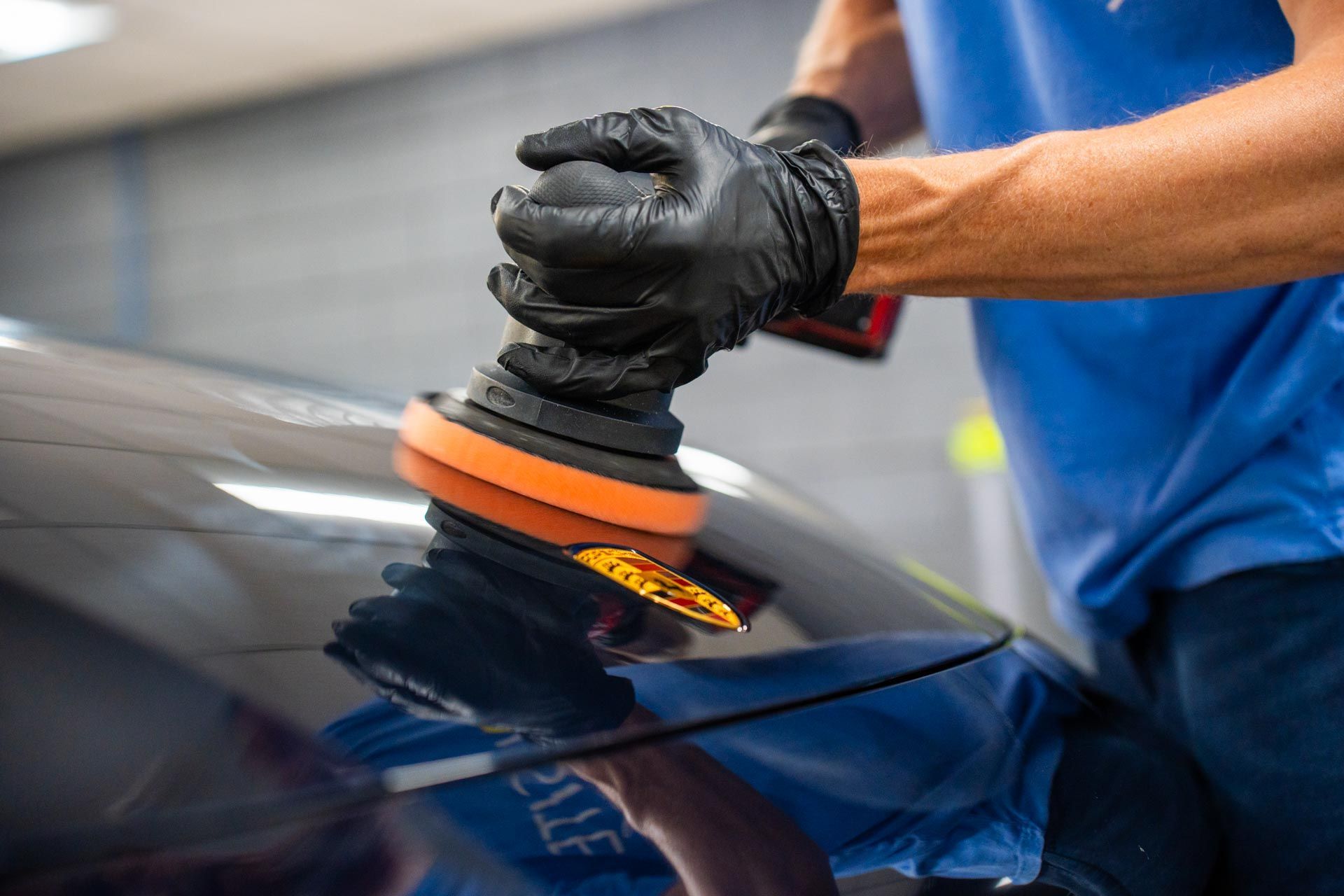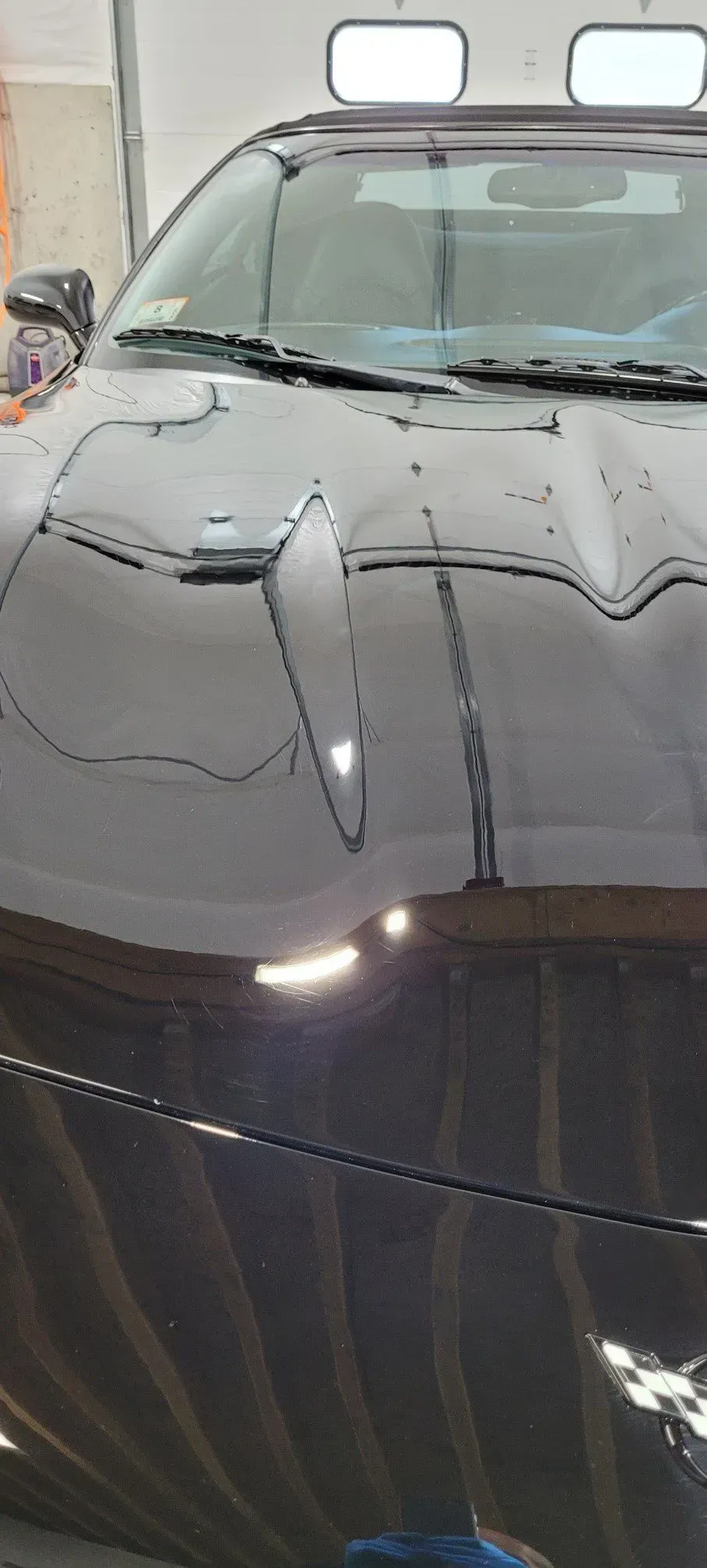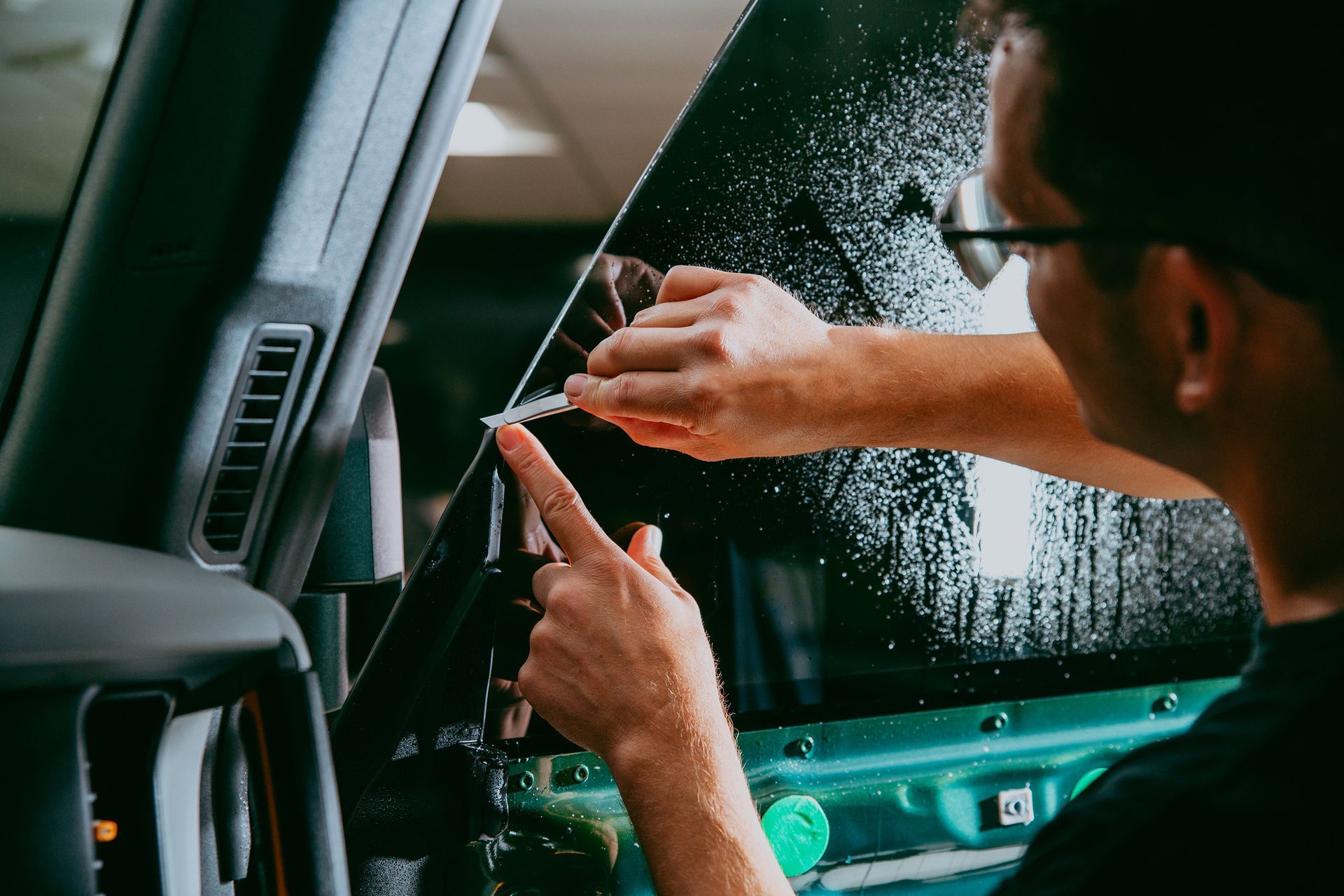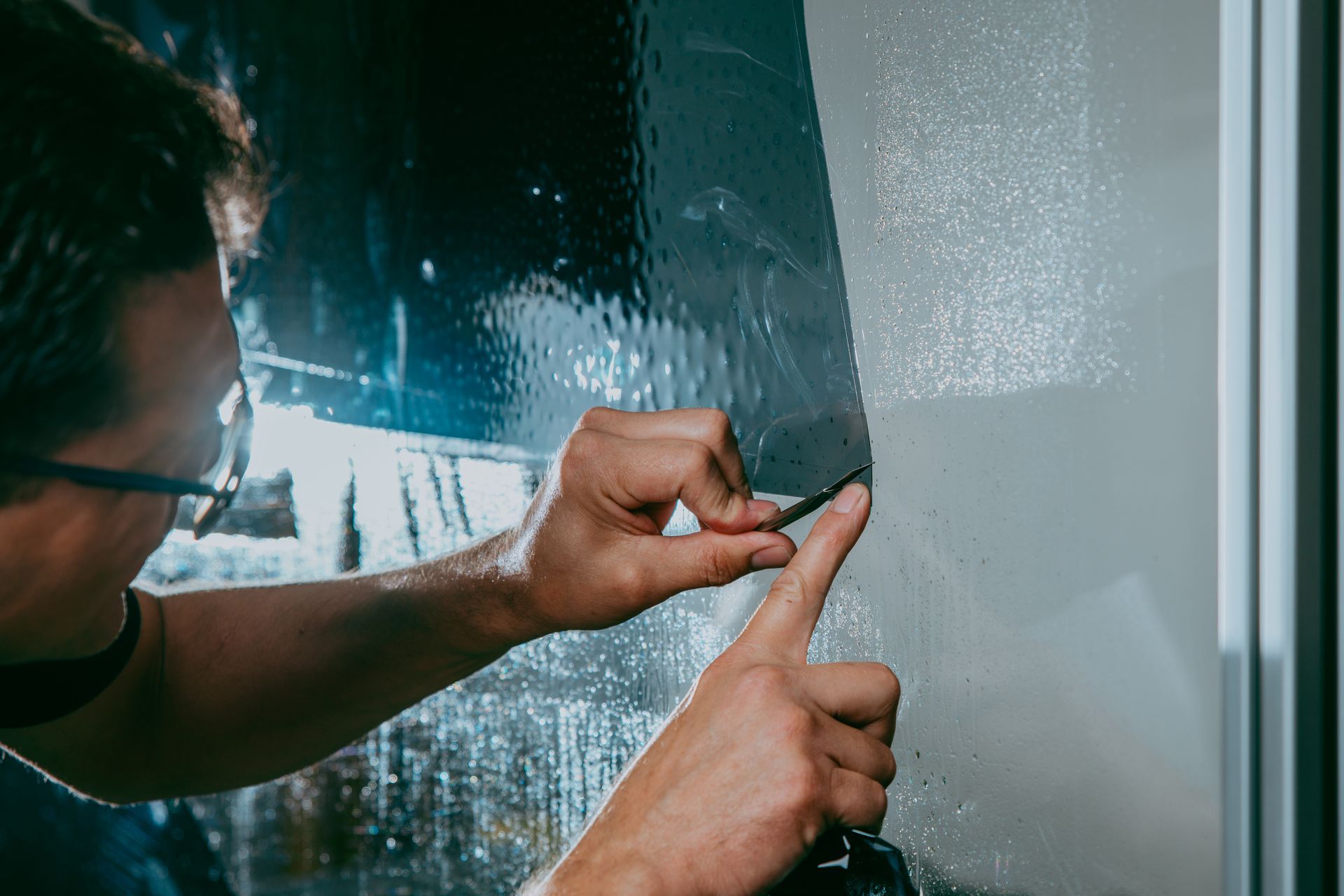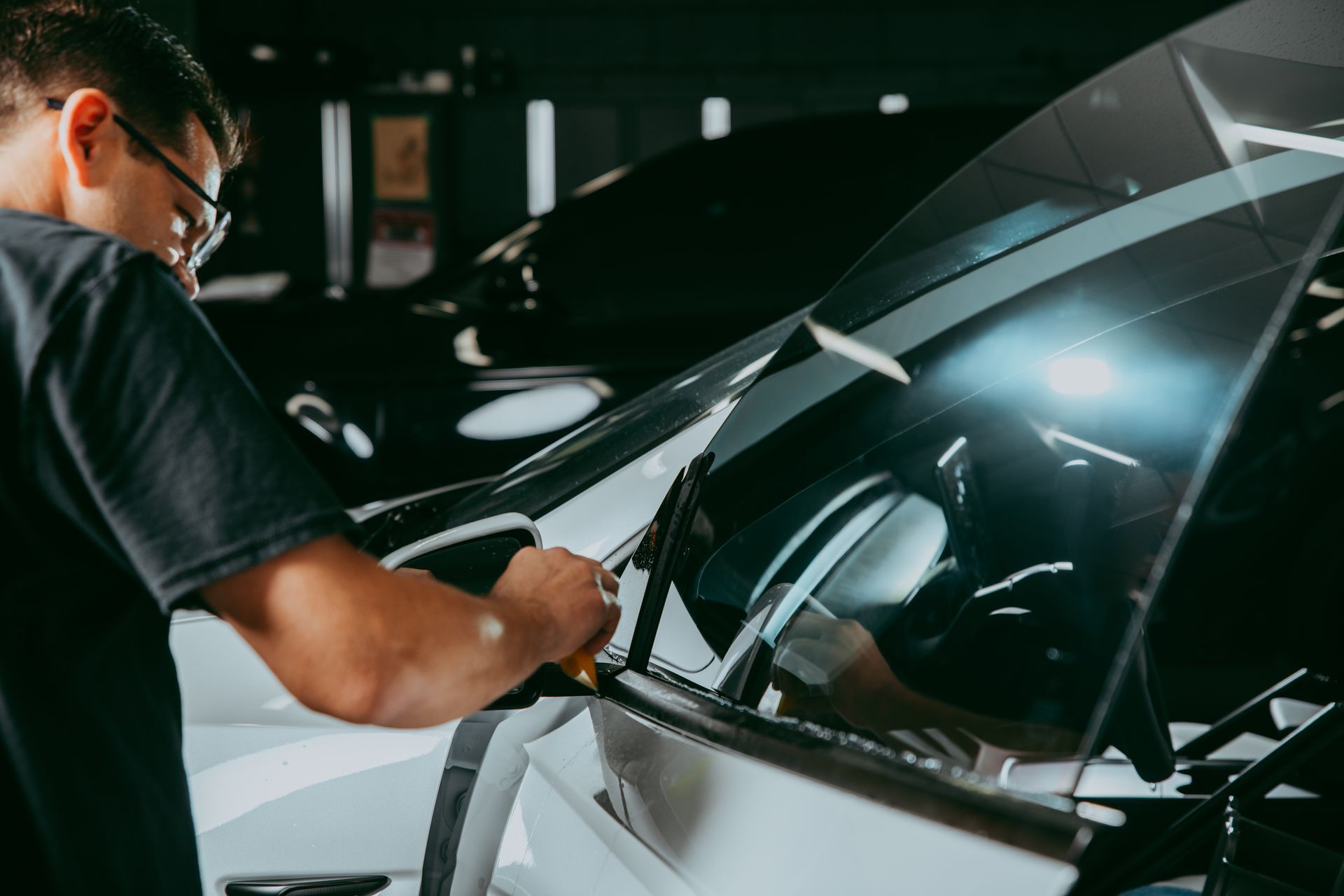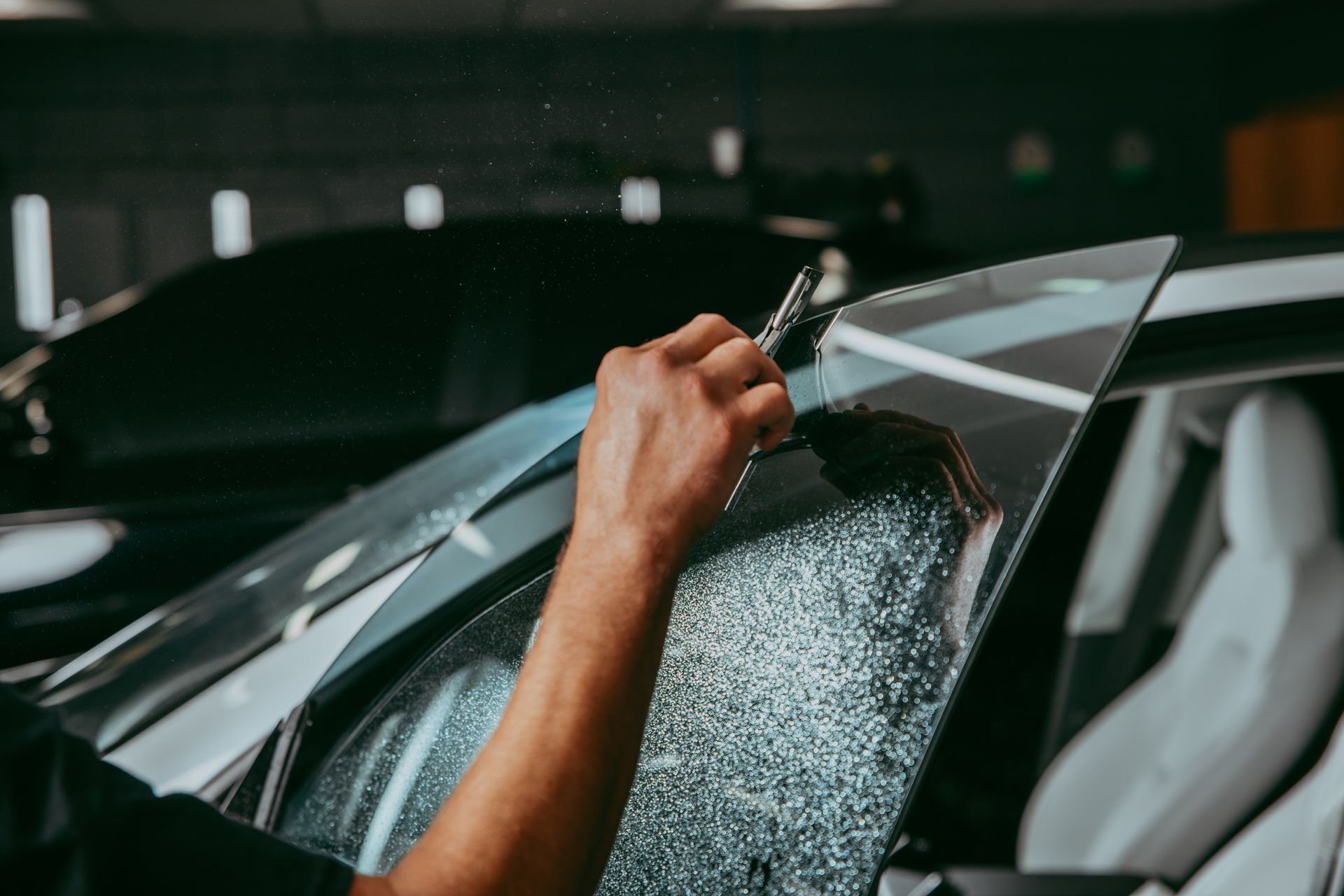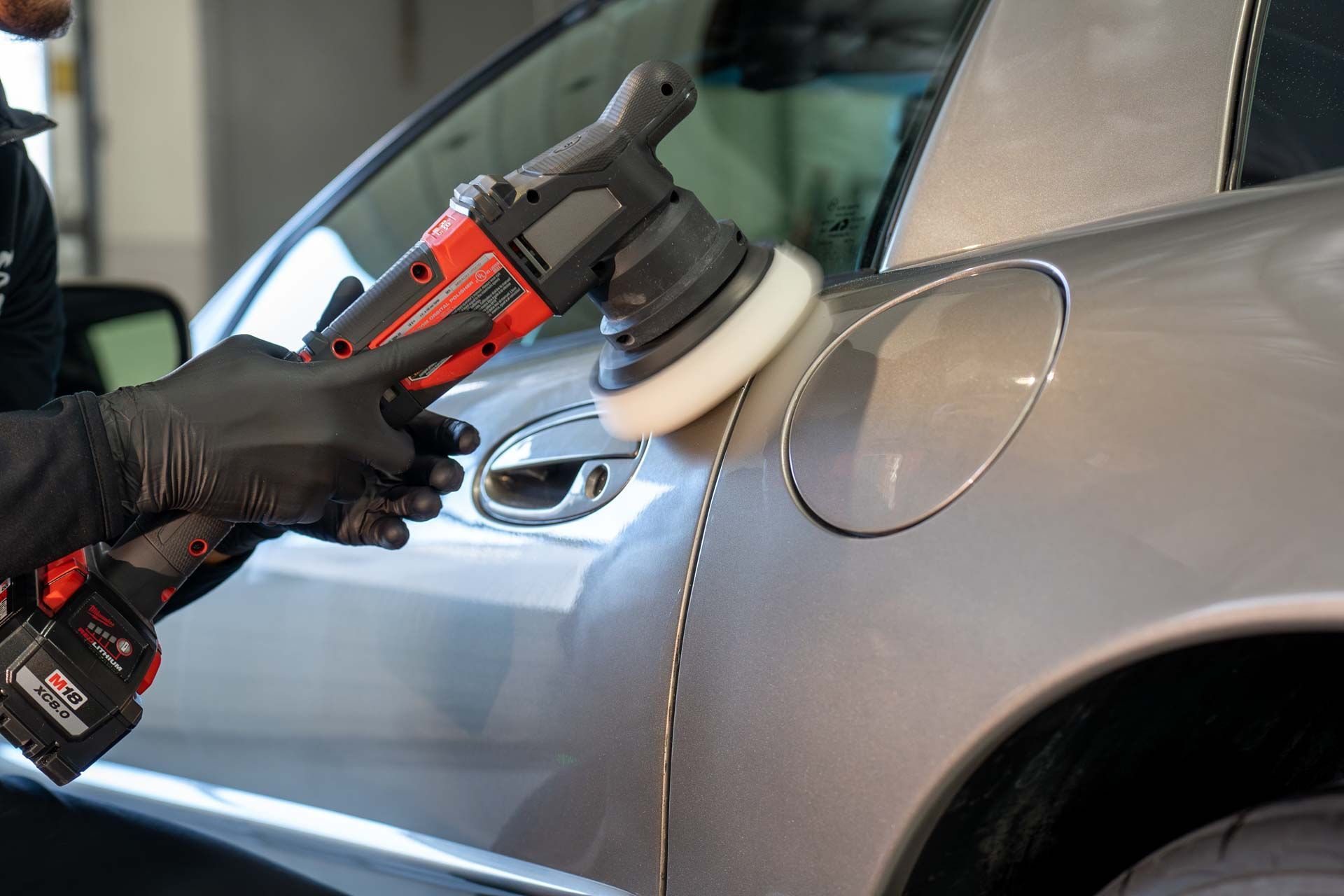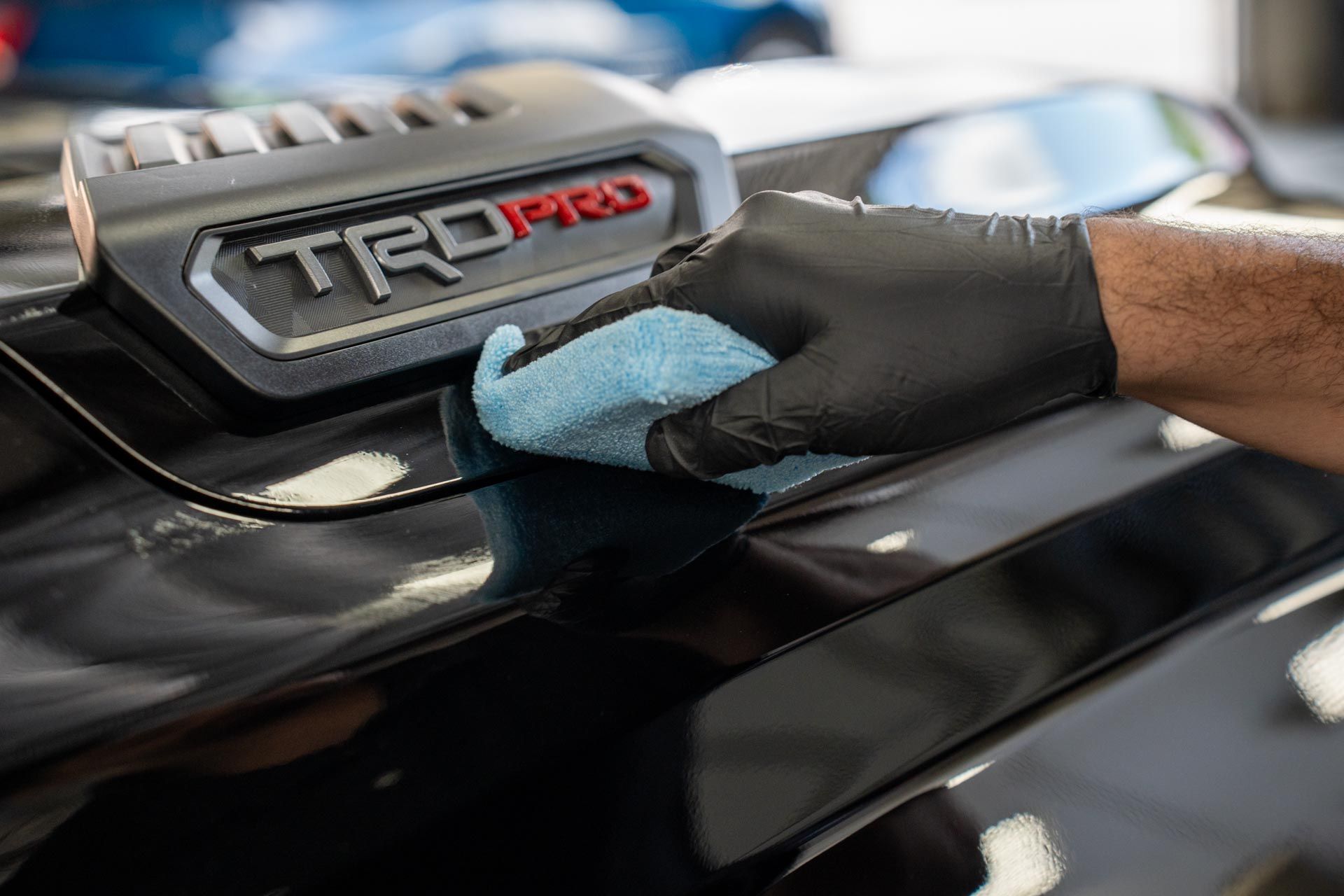How Window Tinting Protects You from Harmful UV Rays: The Benefits Explained
CALL (774) 202-2523
When you think about protecting yourself from the sun, what comes to mind? Sunscreen, hats, maybe even staying in the shade? Have you ever considered the possibility that your car's windows could also serve a protective role? That’s right—auto window tinting is a fantastic way to shield yourself from those harmful ultraviolet (UV) rays while on the go. Not only does it provide a barrier against skin damage and reduce the risk of skin cancer, but it also helps keep your car's interior looking fresh.
Auto window tinting protects you from harmful UV rays by blocking up to 99% of these rays, thereby reducing skin damage and the risk of skin cancer associated with prolonged exposure. In addition to safeguarding your skin, tinted windows help preserve your vehicle's interior by minimizing fading and deterioration due to sunlight.
How Window Tinting Blocks Harmful UV Rays
At its core, auto window tinting serves as a shield against the sun's damaging rays. Window tinting transforms ordinary glass into a formidable barrier by incorporating a thin film of polyester with specialized components like metallic particles, dyes, or ceramics. Specifically designed to combat ultraviolet (UV) radiation, known to contribute to skin damage and various health issues, this film is more than just a decorative addition.
The Science Behind UV Blocking
When you think about high-quality tints, consider those made with ceramic or metallic formulations. Scientific studies have demonstrated their ability to block up to 99% of harmful UV rays. The mechanics behind this effectiveness lie in the material's ability to either absorb or reflect UV light. This means that rather than merely allowing sunlight to enter the vehicle, the tint films actively hinder UVA and UVB rays from penetrating through the glass—keeping your skin and the car's interior protected.
Studies show that prolonged sun exposure contributes to nearly 90% of skin cancer cases. Having effective window tinting can significantly reduce this risk during long drives or while parked under sweltering sun. The concept of UV blocking goes beyond mere comfort. Traditional clear windows only block about 37% of UVA radiation. UVA rays are insidious; they don't cause immediate sunburn but inflict lasting damage over time, contributing to premature aging and increasing the risk for skin cancer. Tinted windows present a vastly superior option by providing a substantial SPF equivalent, significantly enhancing protection levels.
As a direct outcome of utilizing high-quality tinted films, you'll notice considerable benefits in your vehicle's interior preservation. Sunlight can cause upholstery and other materials to fade and deteriorate, leading to expensive repairs or replacements. Well-installed tint films help mitigate this "bleaching effect," maintaining the vibrancy and cleanliness of your car's interior surfaces.
Health Benefits of UV Protection
Window tinting offers essential protection against harmful UV radiation, making it much more than a cosmetic upgrade. By adding this barrier, you not only safeguard your health but also improve the longevity of your vehicle’s interior. Here are some of the key benefits of window tinting and the impact it can have on your life.
- UV Protection for Skin and Eyes: Window tinting blocks harmful UV rays, protecting your skin and eyes from potential damage. Prolonged UV exposure is linked to over 90% of skin cancer cases, emphasizing the importance of this protection. By investing in window tint, you add a shield against the health risks posed by daily exposure to sunlight.
- Aging Prevention: Window films don’t just prevent skin cancer; they also slow down premature aging caused by UV rays. Sun exposure can lead to wrinkles and blemishes, both of which are mitigated by a quality tint. This added protection helps maintain youthful skin, making tinting a wise investment for beauty as well as health.
- Protecting Your Eyes from Sunlight: Tinted windows help protect your eyes from UV exposure, reducing the risk of cataracts and macular degeneration. Extended exposure to sunlight can have a lasting impact on your vision, especially for those who spend a lot of time in their vehicles. Window tinting provides a protective measure that helps keep your eyes healthy over time.
- Preserving Your Vehicle’s Interior: Beyond health benefits, window tinting also shields your car’s interior from fading and damage. Sunlight can bleach upholstery and warp dashboard plastics, diminishing the appearance and durability of your vehicle’s interior. With tinted windows, you’re protecting your investment and keeping your car looking new for longer.
- Maintaining Functional Longevity: Tinting helps maintain the structural integrity of your vehicle’s interior materials, reducing wear and tear from sun exposure. This extends the life of your car’s interior, saving you from costly repairs or replacements. With window tinting, you preserve both the aesthetic and functional quality of your vehicle.
Window tinting is a practical upgrade with benefits that extend beyond appearance, offering significant protection for your health and vehicle. By investing in quality tint, you’re taking steps to safeguard your skin, eyes, and the value of your car.
Shielding Interiors from Sun Damage
Sunlight can significantly impact the interiors of cars and homes, leading to faded upholstery, cracked materials, and overall wear and tear. Window tinting offers an effective solution, providing a shield against harmful UV rays and adding long-term protection to your interior. Below, we explore the multiple advantages of window tinting and how it can make a difference in maintaining the quality and comfort of your vehicle or home.
- Protects Against UV Damage: One of the primary benefits of window tinting is its ability to block up to 99% of harmful UV rays. This protection prevents upholstery from fading and reduces the likelihood of materials like leather and vinyl cracking over time. By acting as a UV shield, tinted windows preserve the color and quality of interior materials for years.
- Minimizes Heat Buildup: Tinted windows significantly reduce heat inside your vehicle, lowering interior temperatures by 30% to 60%. This not only makes your vehicle more comfortable during hot weather but also lessens the load on your air conditioning system. With less reliance on the AC, your vehicle remains cooler without the need for excessive energy use.
- Maintains Interior Condition: A well-maintained interior with minimal fading or cracking enhances your vehicle's resale value. Prospective buyers are more likely to appreciate a car with a preserved interior, free from sun damage. By investing in window tinting, you protect your vehicle’s market appeal, making it a valuable asset at the time of sale.
- Improves Comfort and Reduces Glare: Window tinting offers a noticeable improvement in comfort by minimizing glare and maintaining a stable internal temperature. Passengers enjoy a cooler, glare-free environment, especially during long drives under bright sunlight. This results in a more enjoyable driving experience without the discomfort of intense light.
- Adds Privacy and Security: Window tinting provides an extra layer of privacy by reducing visibility from the outside. This feature helps deter prying eyes and enhances security, as valuables inside the car are less visible. The added privacy benefits not only protect your belongings but also offer a sense of discretion and peace of mind.
Window tinting offers more than just aesthetic appeal; it’s a practical investment in protecting your interior, enhancing comfort, and adding value. With the advantages of UV protection, temperature control, and privacy, tinted windows are an excellent choice for anyone looking to preserve their vehicle’s quality and improve the driving experience.
Energy Efficiency and Reduced Heat
One of the standout advantages of window tinting is its remarkable ability to improve energy efficiency, especially when it comes to reducing heat inside vehicles. To put this into perspective, the U.S. Department of Energy estimates that up to 40% of a home’s cooling demands stem from sunlight penetrating through windows. This means that homes without proper shading waste significant amounts of energy—and money—during the warmer months. Installing window tint can significantly mitigate this heat gain, translating into lower energy bills and less reliance on air conditioning systems.
Just imagine driving on a sweltering summer day; without tinted windows, you might feel like you’re sitting in an oven. In contrast, vehicles with tinted glass remain noticeably cooler, providing immediate comfort as soon as you hop in. Investing in quality UV window film should never merely be an aesthetic decision; it leads to improved comfort and cost-effectiveness in enjoyable living and driving experiences. Whether you're cruising down the highway or relaxing at home, know that window tinting serves as both a protective barrier against harmful rays and an economical choice for enhanced energy efficiency.
Different Types of Window Tint Films
The world of window tinting offers a range of materials, each providing unique benefits. Choosing the right type not only enhances your vehicle's aesthetics but also affects your comfort and protection from harmful UV rays. Let’s break down three primary types of window tint films: dyed films, metallic films, and ceramic films, each with its own set of characteristics, advantages, and considerations.
- Dyed Films: These are a popular choice due to their affordability. They use a dyed polyester material that absorbs solar energy and adds a tinted appearance to your vehicle’s windows. While they effectively block about 70% to 80% of UV rays, they might not be as durable or effective over time compared to other options. One drawback is that they can fade with prolonged exposure to sunlight, so it’s worth considering whether the initial savings will hold up against long-term performance.
- Metallic Films: Utilizing metal particles mixed into the film, metallic tints boast superior UV blocking capabilities—up to 99%. This feature not only keeps the cabin cooler but also prevents interior fading. Additionally, metallic films maintain signal transparency, allowing GPS and communication systems to function without interference. This means you’ll benefit from both style and function without compromising on necessary technical features.
- Ceramic Films: Made from advanced nanoceramic particles, these films offer exceptional benefits. Like metallic films, ceramic tints can block up to 99% of harmful UV rays while also greatly reducing infrared heat. This ensures a cooler environment inside your car and affords long-term protection for your skin and vehicle interiors against damaging sunlight. Although these impressive features come at a higher price point, investing in ceramic tinting can significantly enhance your driving experience by ensuring comfort and protection.
Choosing the Best Tint for Your Needs
Choosing the right window tint for your vehicle involves multiple factors to enhance comfort, safety, and aesthetics. Here’s a breakdown of the key considerations that will help you select the best option for your needs.
- UV Protection Needs: Start by evaluating how much UV protection you need from your window tint. A quality film should block at least 99% of UV rays, protecting your skin and your vehicle’s interior from sun damage. This protection not only preserves your car's appearance but also reduces your risk of skin-related health issues.
- Heat Reduction: For those who want a cooler interior, consider tints with high heat rejection rates. Effective tints can significantly lower indoor temperatures, which is especially beneficial on hot summer days. Ceramic tints, for example, offer superior insulation without sacrificing visibility, allowing you to rely less on air conditioning and save on fuel costs.
- Adherence to Local Regulations: Before choosing your tint, it’s essential to check your local regulations on tint darkness and reflectivity. Some areas have strict guidelines that, if not followed, can result in fines or require you to remove the tint. Consult resources like the Department of Motor Vehicles (DMV) to ensure compliance and avoid potential issues.
- Budget Considerations: Your budget is an important factor in selecting window film, as prices vary widely based on features. Premium tints may be pricier but provide higher UV blockage and heat reduction, offering great long-term value. Investing in quality tinting can reduce health risks and save on cooling costs, making it a worthwhile investment for many vehicle owners.
Each of these factors—UV protection, heat reduction, adherence to regulations, and budget—plays a crucial role in choosing the ideal window tint. By carefully considering these aspects, you’ll be able to select a tint that enhances your driving experience, provides protection, and meets your unique needs.
Premium Window Tinting Services in Dartmouth, MA
Enhance your vehicle’s style and comfort with the
premium window tinting services from Elite Auto Detailing in Dartmouth, MA. Our expert team applies high-quality tint films that provide excellent heat reduction, UV protection, and privacy, making each drive more enjoyable and safer for you and your passengers. With a meticulous approach to installation, we ensure a seamless, bubble-free finish that lasts. Choose Elite Auto Detailing to bring a perfect blend of functionality and sleek design to your vehicle’s windows—reach out today to experience the difference that professional tinting can make. Call us at (774) 202-2523 to get started!
